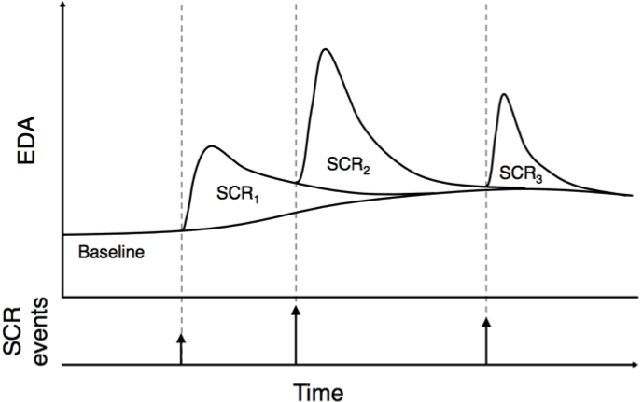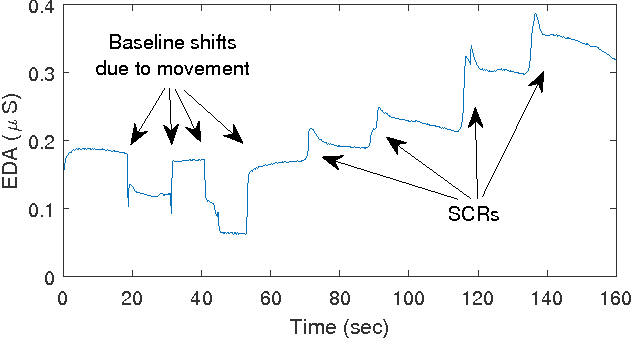A Compressed Sensing Based Decomposition of Electrodermal Activity Signals
Paper and Code
Jan 26, 2017



The measurement and analysis of Electrodermal Activity (EDA) offers applications in diverse areas ranging from market research, to seizure detection, to human stress analysis. Unfortunately, the analysis of EDA signals is made difficult by the superposition of numerous components which can obscure the signal information related to a user's response to a stimulus. We show how simple pre-processing followed by a novel compressed sensing based decomposition can mitigate the effects of the undesired noise components and help reveal the underlying physiological signal. The proposed framework allows for decomposition of EDA signals with provable bounds on the recovery of user responses. We test our procedure on both synthetic and real-world EDA signals from wearable sensors and demonstrate that our approach allows for more accurate recovery of user responses as compared to the existing techniques.
 Add to Chrome
Add to Chrome Add to Firefox
Add to Firefox Add to Edge
Add to Edge